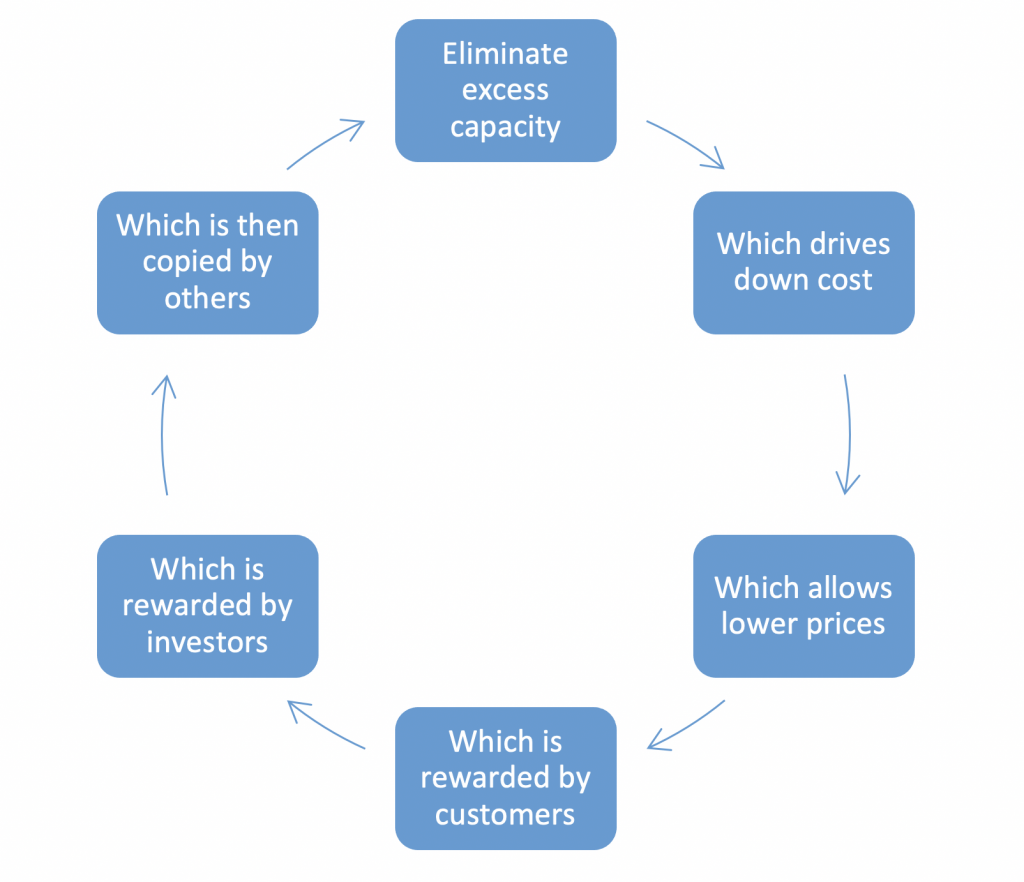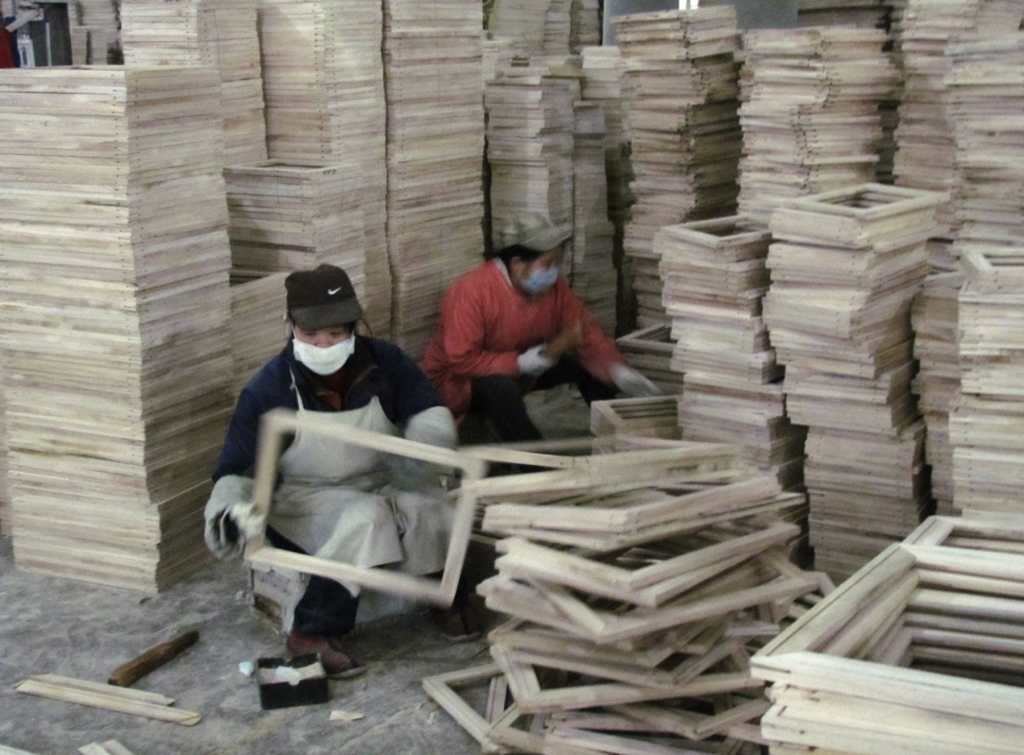“The devil doesn’t come in a red cape and pointy horns.
He comes as everything you ever wished for.”
—Tucker Max
On Thursday, March 11, 2020, I left the Wild Dunes Island Resort and headed for the Charleston International Airport. I had just given a talk to the New South Construction Supply management team about the benefits of leadership strategies that disperse power and strengthen the voices of others. A short time later I found myself walking through an all but deserted terminal as CNN reported on the arrival of COVID-19.
Who would have guessed in that moment that demand for lumber and building materials across North America would soon be surging, or that shelves in grocery stores would sit empty for lack of supply, or that a global boom in manufacturing was about to ensue?
By the summer of 2020 retailers, distributors, and manufacturers were racing to keep pace with demand for consumer goods. Freight deliveries via truck, train, and ship fell dramatically behind. Inventories plummeted, lead times expanded, and prices increased. This all happened during state-imposed stay-at-home orders of unprecedented duration and magnitude.
Looking back on it all with more than a year’s perspective, it was quite predictable. America, once again, had gotten what it paid for.
* * *
In the decades that followed World War II, the Toyota Motor Corporation would become one of the first businesses to implement and advance the concepts of Lean manufacturing. The essence of this system was the elimination of “waste.” Waste was defined as anything more than the exact amount of equipment, employee labor, parts, and inventory needed to maintain consistent production flow pulled by demand. Companies that learned to operate this way saved cash, increased their return on asset performance, and grew profits. Investors rewarded them. Today virtually all businesses are a by-product in varying degrees of that Toyota-born economic system.
The quest for peak efficiency then rippled through the nonprofit sector, where just enough teachers, school buses, and nurses also carried the day.
This system of Lean thinking has numerous benefits and one big problem: It can’t adjust to a dramatic, unforeseen surge in demand. Why? Because for decades companies around the globe have been rewarded by both investors and consumers for eliminating their excess capacity.
And which country has led this charge with the most powerful investor community and most sought-after consumer market?
Yes, that’s right—America.
For example, the less inventory Walmart carries, the lower their cost of doing business becomes. The lower their cost of doing business becomes, the lower their selling prices can be. The lower their selling prices, the more customers they attract. The more customers they attract, the more profitable they get. The more profitable they get, the more investors are willing to pay for their stock. The wheel of “Lean” just keeps on churning.

* * *
But here’s the secret of the story that’s easily missed. It was consumers—not corporations—that enabled this system.
Corporations are rewarded for listening and responding to public demand and penalized for ignoring it. Successful companies only ever mirror their society as a whole. Walmart, by way of just one example, gave America exactly what it wanted.
According to Businessinsider.com, the average Chinese worker made $9,470 per year in 2019 in adjusted US dollars. That compared to $62,850 in the United States. Do you need to know anything more than that as to why so many products (or components of products) that you choose to buy come from China?
Chinese suppliers make 70 to 80 percent of the products Walmart sells. That means the rest of the world (including America) has the opportunity to provide 20 to 30 percent of what Walmart sells.

Again, here’s the point: Walmart didn’t do that. You did. I did. We did.
As a country we love berating corporations for giving us what we demand.
The United States is the largest consumer market in the world, and corporations globally have set themselves up to give that market exactly what it wants.
America always gets what it pays for.
What does all of this have to do with heightened self-awareness?
Everything.
As a country, we need to strive for more economic self-awareness as demonstrated by what we do and do not buy.
Think about the irony of rightfully championing a living wage in America while simultaneously demanding that Walmart dedicate 70 to 80 percent of its shelf space to products made on Third World wages.
So, the next time there’s no toilet paper, remember that you and I are the reason why.
“Every time you spend money, you’re casting a vote for the kind of world you want.”
—Anna Lappe
* * *
Thank you for considering my thoughts. In return I honor yours. Every voice matters. Between our differences lies our future.
____________________
This is the seventeenth in a series of short essays to be posted by Kevin to www.thebusinessofsharedleadership.com in 2021. Kevin is dedicating these writings in honor of Black Elk, the Oglala Sioux holy man who was escorted as a child on a sacred vision quest by the 48 horses of the four directions to visit the six Grandfathers. My horses, prancing they are coming. They will dance; may you behold them. On that journey Black Elk understood the sacred power that dwelled within him and lives within us all. He also recognized that this power could be used for good or bad. Intentional we must be about the path we walk. To invite others to join The Business of Shared Leadership and receive these posts, just pass this link along. The more who join, the deeper the energy field of engagement will become! Thank you!